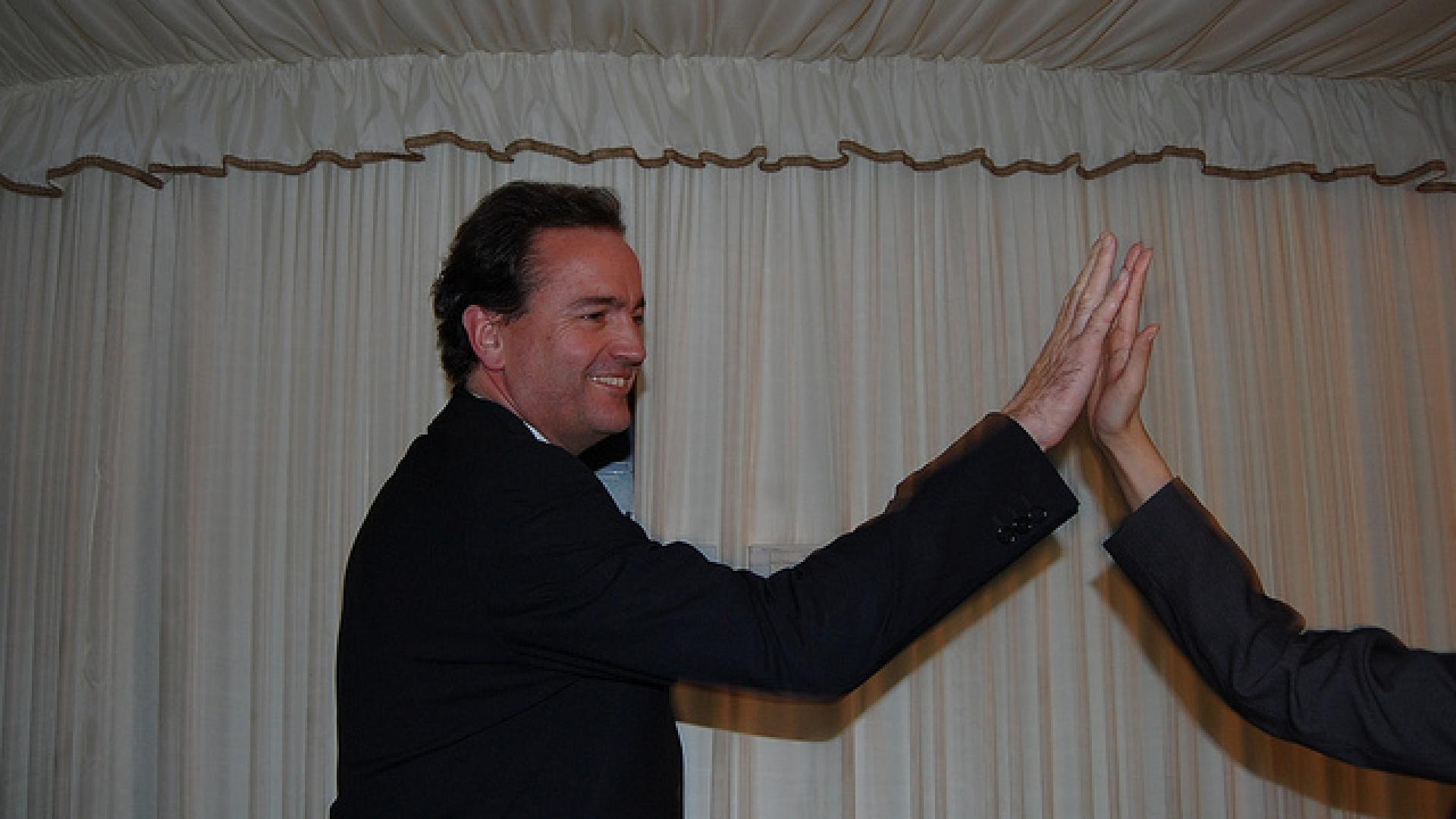As Nick Hurd leaves the sector to applause and acclaim from sector leaders, all eyes shift to Brooks Newmark MP, the new Minister for Civil Society. Apart from a name as unconventional as his background – he was born in the United States and lived there until he was nine – little seems to be known about him as he moves into the third sector hotseat.
He has largely been a background figure in the Cameron government, putting in a few Select Committee appearances and holding mainly Whip positions hitherto. So the question on everyone’s lips is: will he be Whipping the sector into shape?
Three seemingly uneventful years have passed since his controversial visit to Syrian President Bashar-al Assad. He presented the dictator with Britain’s disdain for his regime that day and paid for the visit himself, surely evidence that he’s not afraid to confront the big issues face-to-face. So as we wait to see how well he walks in the sizeable shoes left out for him, it’s time to look at what kind of sector he’ll be inheriting, how he can prepare and what he needs to watch out for.
Public trust is down
The Minister will take on a sector with trust levels at their lowest in three years and their second lowest in six. Just over half of people trust our charities these days and his work will be needed to repair it. Part of his remit is increasing transparency and as far as barometers go, trust is a basic yet useful test of his success. Perhaps he’s not the pilot, but he certainly needs to be in the air traffic control room preventing collisions.
That said, he also inherits a job in government, trusted by just 20% of people, and already had a job in the UK's least trusted institution; a political party.
People still don’t know much about how charities spend money
Our latest data shows that people’s perception and reality differ wildly when it comes to how charities spend their money. On average, the public think charities spend 38% of their income on the cause, 26% on fundraising and 37% on admin. Speaking broadly, it’s concerning to note that the actual numbers are closer to 80%, 15% and 5%.
They’re also unclear on what really counts as 'the cause', with a third of people saying a nurse feeding children in a refugee camp does not. Will Brooks Newmark get people and charities to talk to each other? It’s that word transparency again and there has been little progress historically.
Independence or devolution max?
The ex-Harvard man will also face an uncertain time as Scotland hurtles towards her referendum on devolution. On the one hand, his workload should technically get smaller if Scotland votes yes, as some charities would be removed from his portfolio, but he’ll still need to be in the control tower to navigate the sector through an uncertain and chaotic time.
If the Scots vote no, how much will yet more devolution affect the sector? Our research shows that the public are unclear and MSPs simply disagree about the consequences, so hopefully he’s starting his reading right after he finishes this blog. It will be especially challenging because presumably he is against independence, at least publicly, as his party's line dictates. Will he be able to put this aside and fully listen to the concerns of both sides?
Giving and doing
He’ll also be inheriting a sector that has emerged from the global financial crisis in surprisingly good shape. Nearly three quarters of adults have given in the last three months, the amount they give is rising and half of those people gave to three to five charities. Whilst charities are responsible for their own fundraising, he is tasked with sector debt, so he should be keeping a keen eye on income.
In further good news for him, a fifth of people have volunteered recently and half of those do so weekly. Volunteering is a big part of his role and he has a good base from which to build.
Opposition
As the new Minister occupies the blue corner, he’ll face Lisa Nandy in the red corner. Alongside the usual advantage of having been in her role longer, Ms Nandy’s CV features experience in the sector with The Children’s Society. She’s also not afraid to ask the tough questions, having addressed the Commons recently to demand action on the alleged Parliamentary sex abuse scandal. Mr Newmark will need to be on his guard and up to speed early.
Overall, the charity sector is still a closed book in the eyes of many. Despite the huge advances in technology, the public still don’t understand how their charities work. Either they’re not listening or charities aren’t talking and it will fall to The Honourable Gentleman to bridge this divide. We’re seeing an arguably opaque sector being taken on by a man we know little about.
The challenges are clear and we’ll be watching with interest to see how it pans out.
On you Newmark; get set, go.

